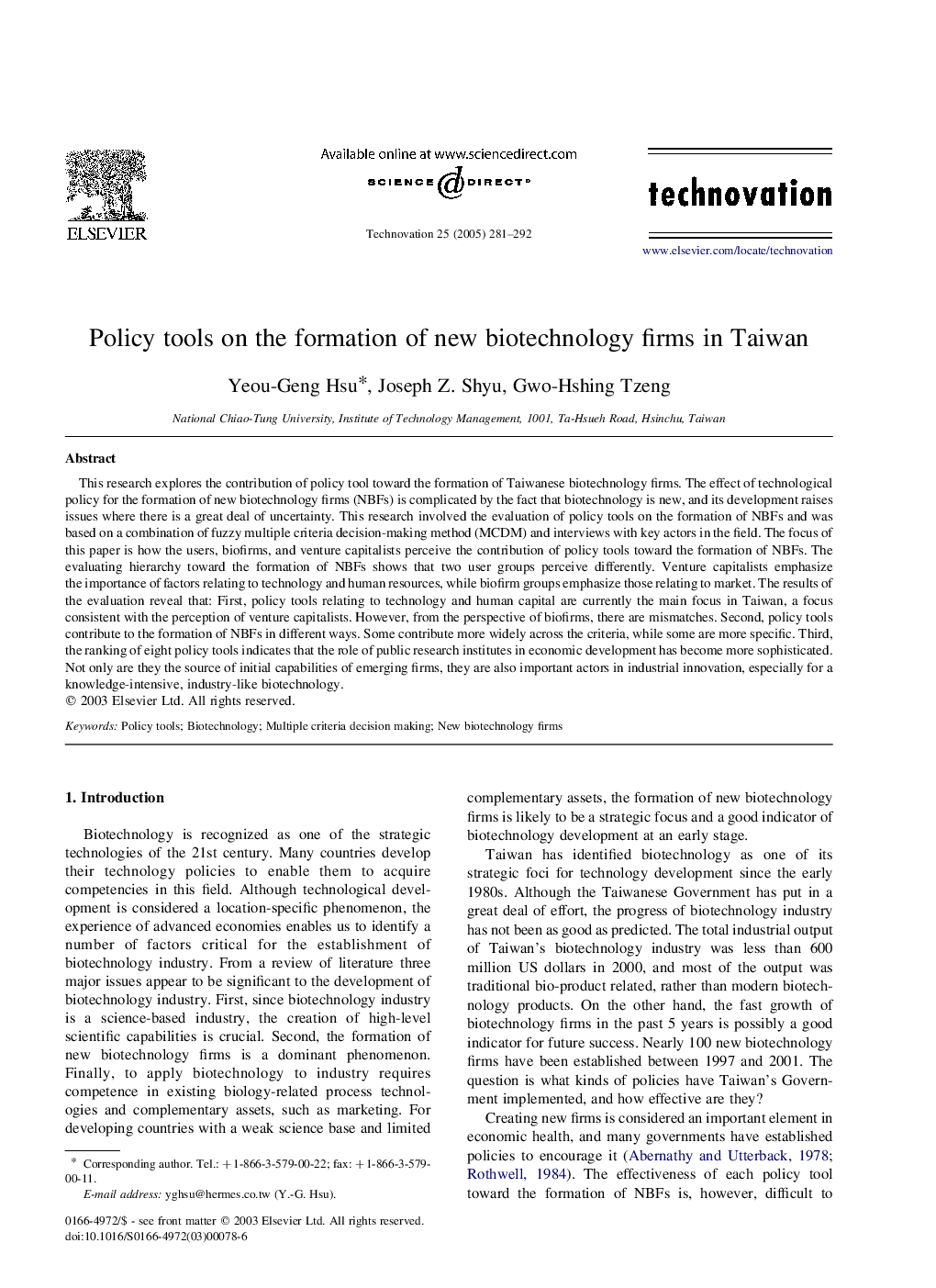| Article ID | Journal | Published Year | Pages | File Type |
|---|---|---|---|---|
| 10495115 | Technovation | 2005 | 12 Pages |
Abstract
This research explores the contribution of policy tool toward the formation of Taiwanese biotechnology firms. The effect of technological policy for the formation of new biotechnology firms (NBFs) is complicated by the fact that biotechnology is new, and its development raises issues where there is a great deal of uncertainty. This research involved the evaluation of policy tools on the formation of NBFs and was based on a combination of fuzzy multiple criteria decision-making method (MCDM) and interviews with key actors in the field. The focus of this paper is how the users, biofirms, and venture capitalists perceive the contribution of policy tools toward the formation of NBFs. The evaluating hierarchy toward the formation of NBFs shows that two user groups perceive differently. Venture capitalists emphasize the importance of factors relating to technology and human resources, while biofirm groups emphasize those relating to market. The results of the evaluation reveal that: First, policy tools relating to technology and human capital are currently the main focus in Taiwan, a focus consistent with the perception of venture capitalists. However, from the perspective of biofirms, there are mismatches. Second, policy tools contribute to the formation of NBFs in different ways. Some contribute more widely across the criteria, while some are more specific. Third, the ranking of eight policy tools indicates that the role of public research institutes in economic development has become more sophisticated. Not only are they the source of initial capabilities of emerging firms, they are also important actors in industrial innovation, especially for a knowledge-intensive, industry-like biotechnology.
Related Topics
Social Sciences and Humanities
Business, Management and Accounting
Business and International Management
Authors
Yeou-Geng Hsu, Joseph Z. Shyu, Gwo-Hshing Tzeng,
